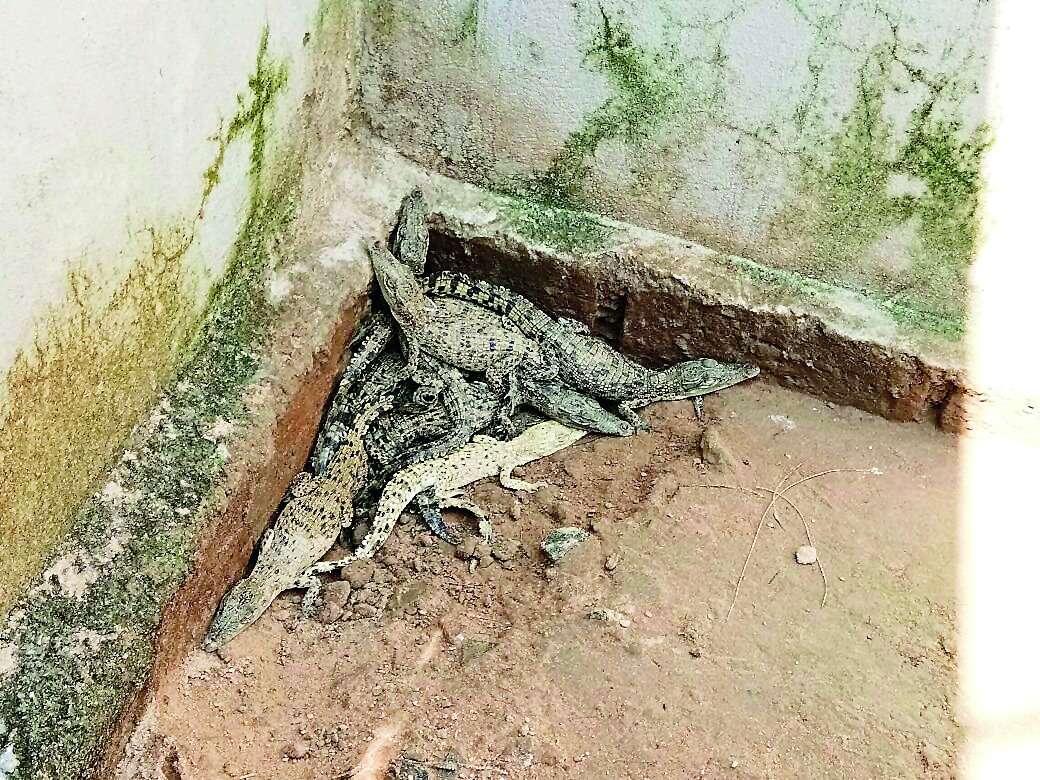
Kendrapara: Artificially bred estuarine crocodile babies have emerged from the eggshells at Bhitarkanika National Park.
"Sight of the baby crocs breaking out of the eggshells and loitering aimlessly around the enclosure of the breeding centre was a treat to watch," said a forest official.
Baby crocodiles had started emerging from the eggs earlier this month in and around the national park. The emergence of baby crocs from the nests both in captivity and in the wild has marks the culmination of annual breeding and nesting season of these reptiles.
"Forty eggs collected from the wild were artificially hatched. Thirty-six hatchlings have so far emerged and these would later be released in a captive pond of the national park. They will be reared till they grow up to a metre long. Usually, it takes three years for a baby to grow that long. The babies are not released in the wild as there is maximum possibility of predators devouring them," divisional forest officer, Rajnagar mangrove (wildlife) forest division, Bimal Prasanna Acharya said. "The mortality rate of croc hatchlings is exceedingly high. Of 500 baby crocodiles, only one reaches adulthood."
The forest officials had kept the national park closed from May 1 to July 31 during the nesting period of the reptiles.
The rear and release of these hatched reptiles has been going on since 1975, funded by the United National Development Programme and Food and Agriculture Organization. The conservation project undertaken at Bhitarkanika tasted success while a similar UNDP-funded gharial croc conservation project launched simultaneously in Angul district's Tikarpada Sanctuary was a failure.
The crocodile population at Bhitarkanika has increased from 96 in 1974 year to 1,698 this year.
Adequate conservation measures by the state forest department have led to a systematic rise in the number of these reptiles over the years, an official claimed.










